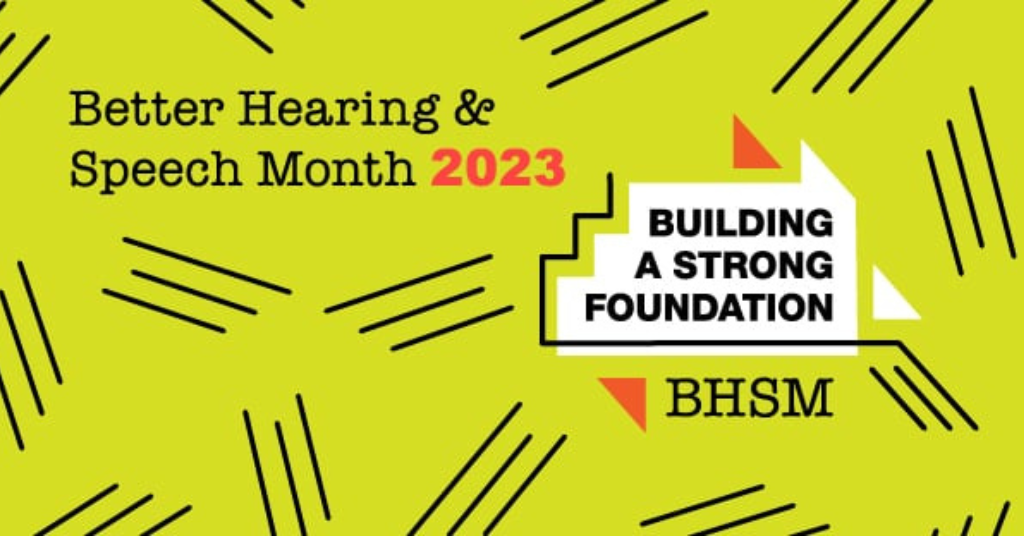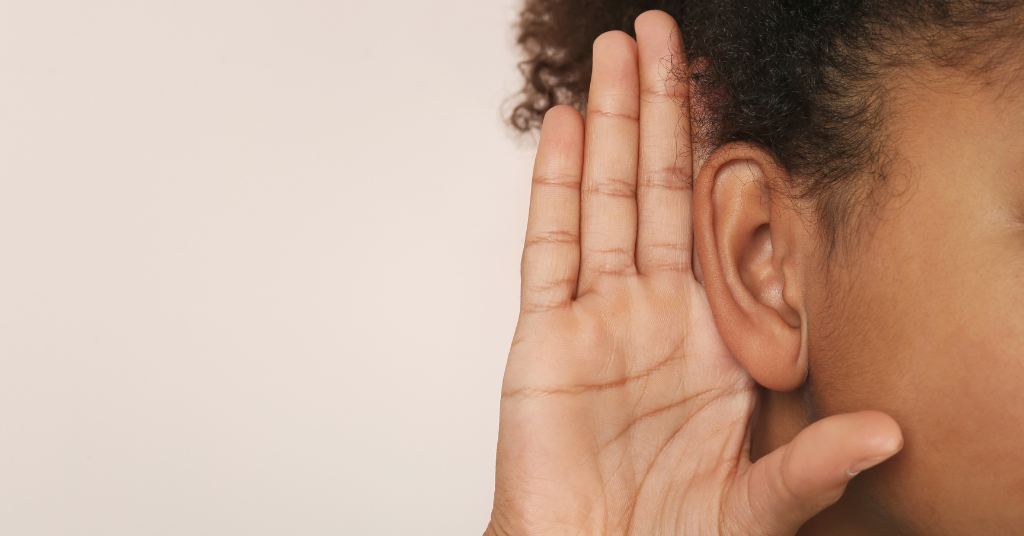
The Childcare Challenge
March 11, 2015
Dating with Hearing Loss: the Good, the Bad, and the Stories that Make You Say, “What?”
March 18, 2015Talk to Me: Hearing is Not Listening

People Talking Communication Conversation Workplace Concept
I’m a talker. Have been since my first words, or so the legend goes. Even as I became part of the “hearing lost” I didn’t stop talking.
According to my audiologist when we lose hearing we have two choices, really — to recede and/or to step forward. Or in my case, to do what has always come naturally.
Being a talker with a hearing loss hasn’t always been a good thing. In fact, it’s caused me countless embarrassing exchanges more times than I have data for.But I discovered that if I talked I didn’t have to listen — or listen as much. I would simply try to outrun the speaker’s attempt at a conversation. I would try to anticipate where the conversation was going and leap into the middle of it with some confirming words or experiences of my own to try that might match the “attempted” conversation.
Naturally, this led often to conclusions and verbal assaults that did not come close to matching the speaker’s intent or situation – laughing at a death or acting indifferently at some very good news, just for starters. Nevertheless, for the longest while, I could walk away satisfied that I had at least demonstrated my trained voice, clever wit and wide ranging knowledge of any number of topics, even if they had nothing to do with the conversation I was “allegedly” having.
What I finally came to admit was that even with hearing — actual or enhanced — I simply wasn’t listening. In order not to be found out, I was talking over people in the vain hope of completing the ruse.
That said, I am also a professional talker: trained in voice, public speaking, singing, acting and improvisation. I’ve been speaking professionally since soon after I lost my hearing for good in 1982. Then, after my music career had ended and I had entered the natural products industry, I spoke about my health crises and what I was doing to address them, how that was all changing my life, and what others might do to improve their own. I spoke on myriad related topics to myriad public and professional audiences, around the country. I am now about to resume that career speaking about the past 30+ years of my life and preparing for a return to music.
Along the way I’ve learned many things that have colored my views not only about speaking and hearing, but about hearing and listening, and about communication in general, things that I now wish more people knew.
Nothing has impacted my thinking more than this:
In any interpersonal exchange, content is 7% of what we remember. 7%. Think about that. I did when after years of over-preparing presentations, power points and audio visual aids, I realized the meat of my presentations was not being digested by my audiences. At least not at that moment.
Here’s another: tone is 55% of what people remember from interpersonal exchanges. Hmm, so it’s not what you say it’s how you say it? Ever hear that before?
But wait, there’s more: 38% of what people remember in any exchange is body language – whatever it is we do from head to toe during our exchanges.
So we hear (and can “hear”) with much more than our ears or hearing aids permit IF we know how to “listen” to content as well to tone and body language.
This is partly how bluffing works. We interpret as best we can the tone and body language of another person even if we only get little of the content. All these years of reading tone and body language have not been for naught.
Until I realized that I could do much better. By listening more.
Technology has certainly played a role and with each new hearing aid upgrade I am able to hear more sounds and therefore more content. But listening is another thing altogether that the hearing aid alone could not help me with.
If I want to hear, I have to listen.
Over the past 6-7 months I began ear training to get myself ready to record music again. I now do a variety of listening exercises — words, tones (musical and otherwise) scales, musical phrases, sentence comprehension, listening in distracting backgrounds, and repeats. Geoff Plant, my ear training specialist, has pointed out that despite what my audiogram said about my hearing abilities, I was not a very good listener.
I also sing for hours daily to connect my body (vibrations and muscle memory) and voice to my hearing and allow the brain to figure it all out — which is doing one hell of a job, I must say.
Like many among us “hearing lost,” I had grown lazy. Lazy over 30 plus years – apparently an occupational hazard many of us face. Lazy because it took more work than I cared to give to hear “everything.” Lazy because I did not read lips, certainly not while doing all that talking. Lazy because we use our eyes to get the message our ears fail to, and I have the extra disadvantage of having sight in only one eye. And it tires easily.
Geoff has gotten me back to really listening and listening hard and now I listen with more ease and have stopped talking until people finish – most of the time. I find it allows me to breathe more relaxed and therefore I can absorb more content, tone and body language. It also helps that I am not in any way ashamed to ask someone to repeat something that I have been working so hard to hear. I find that people now are more amenable to that if I am not interrupting them to try and beat them to the end of the sentence.
And all that listening is improving something I never though it would – my musical hearing. Now, by listening more carefully and with more intent, upgrading my technology, and continuing vocal work, I’m hearing ever richer sounds, voices, instruments and music.
Perhaps the best part is that my friends are starting to tell me that I appear to be “hearing” much better. That may be, but it’s also true that I’m listening to them more, too. For the “hearing lost”, hearing aids and CI’s are a big part of communication. And as I’ve discovered, if I want to be better communicator, I need to be a better listener, too.
Listening — what a concept — when all along I thought my challenge was hearing.
Listening exercises work. Have you tried them yet?
- Author Details




